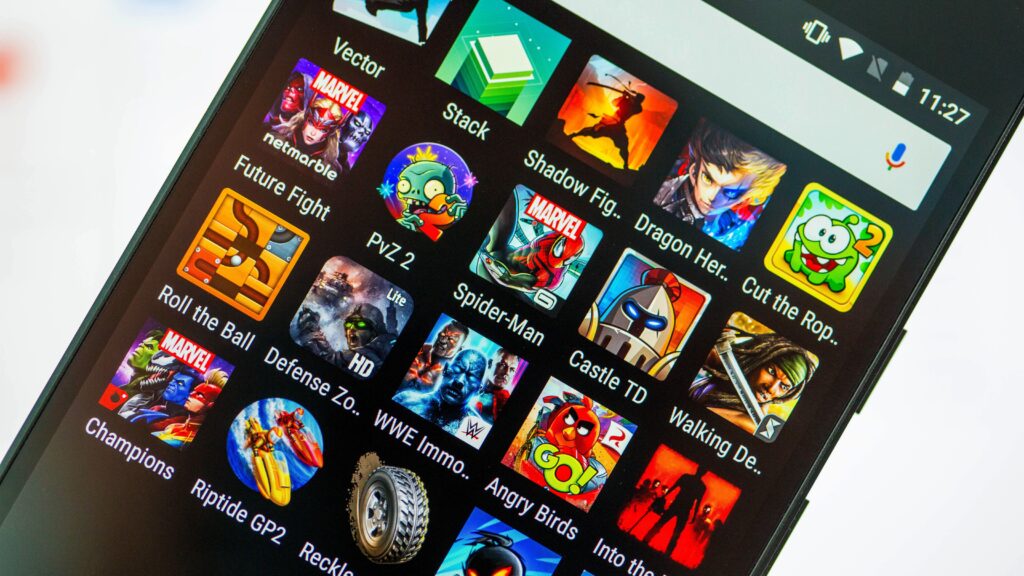In the realm of mobile gaming, Android has emerged as a dominant force, boasting a massive user base and a diverse array of devices. This surge in popularity has given rise to a burgeoning industry of Android game development companies, each vying to create immersive and captivating gaming experiences. This article delves into the intricate world of Android game development companies, exploring their role in shaping the mobile gaming landscape, the challenges they face, and the strategies they employ to stay ahead.
The rise of Android gaming
The past decade has witnessed a seismic shift in the gaming industry, with mobile gaming carving out a substantial share of the market. Android, with its open-source nature and widespread adoption, has become the platform of choice for millions of gamers worldwide. This surge in demand for Android games has fueled the growth of specialized Android game development companies.
These companies play a pivotal role in translating creative ideas into interactive and engaging games that captivate audiences across the globe. From casual games to complex simulations and high-end graphics, Android game developers strive to cater to a diverse range of preferences, ensuring there’s something for every type of gamer on the platform.
Key components of Android game development companies
Talent pool and expertise
At the heart of every successful Android game development company lies a talented and diverse team of professionals. These teams typically include game designers, programmers, artists, animators, sound engineers, and quality assurance experts. The synergy between these disciplines is crucial to delivering a seamless and enjoyable gaming experience.
Experienced game developers possess a deep understanding of the Android ecosystem, enabling them to leverage the platform’s unique features. From optimizing games for different screen sizes and resolutions to harnessing the power of advanced hardware, expertise in Android development is paramount for creating high-quality games.

Technology stack and tools
Android game development companies rely on a robust technology stack and a suite of tools to bring their creative visions to life. The choice of game engines, programming languages, and development frameworks significantly influences the efficiency and quality of the development process.
Unity and Unreal Engine are two widely adopted game engines that empower developers to create visually stunning and feature-rich games. Kotlin and Java stand out as primary programming languages for Android game development, while tools like Android Studio provide a comprehensive integrated development environment (IDE).
Augmented Reality (AR) and Virtual Reality (VR) have also made their mark in the Android gaming landscape, opening up new possibilities for immersive experiences. As technology continues to advance, Android game development companies must stay abreast of emerging trends to remain competitive.
Market research and monetization strategies
Successful Android game development extends beyond coding and design; it requires a keen understanding of market trends and user behavior. Thorough market research helps companies identify gaps in the gaming landscape, allowing them to tailor their offerings to meet specific demands.
Monetization strategies are another critical aspect, as developers seek a balance between providing value to users and generating revenue. The freemium model, which offers free downloads with optional in-app purchases, has become prevalent. An ad-based monetization is also a popular approach, with rewarded ads offering players tangible benefits in exchange for viewing advertisements.
User experience and design
Creating a memorable gaming experience hinges on intuitive design and user-centric interfaces. Android game development companies invest heavily in user experience (UX) design to ensure that their games are accessible, engaging, and easy to navigate.
From the initial onboarding process to in-game interactions and menu design, every aspect contributes to the overall user experience. Striking the right balance between functionality and aesthetics is crucial, as players are more likely to stay engaged with games that offer a seamless and visually appealing experience.
Challenges in Android game development
While the Android gaming industry presents vast opportunities, it is not without its challenges. Android fragmentation, characterized by a multitude of devices running different versions of the operating system, poses a significant hurdle for developers. Ensuring compatibility across a diverse range of devices requires meticulous testing and optimization, adding complexity to the development process.
Moreover, the competitive nature of the Android game market demands that developers not only create compelling games but also implement effective marketing strategies. Visibility on the Google Play Store is crucial for attracting users, and navigating the intricacies of app store optimization (ASO) is essential for achieving high rankings.

The constant evolution of hardware and software technologies adds another layer of complexity. Developers must stay attuned to the latest advancements to harness the full potential of emerging features, such as improved graphics capabilities, augmented reality, and 5G connectivity.
Strategies for success in Android game development companies
Innovation and originality
In a saturated market, standing out is paramount. Successful Android game development companies prioritize innovation and originality, striving to create unique gaming experiences that capture the imagination of players. This might involve introducing novel gameplay mechanics, innovative storytelling, or leveraging emerging technologies to deliver cutting-edge experiences.
Adaptability and flexibility
The dynamic nature of the gaming industry necessitates adaptability. Android game development companies must be agile in responding to market trends, user feedback, and technological advancements. Flexibility in adapting to new tools, platforms, and business models ensures that developers can stay ahead of the curve.
Community engagement and feedback
Building a strong community around a game can contribute significantly to its success. Android game development companies actively engage with their player base through social media, forums, and other channels. By fostering a sense of community, developers can receive valuable feedback, identify areas for improvement, and cultivate a loyal fan base.
Cross-platform compatibility
While Android is a dominant force in the mobile gaming space, cross-platform compatibility has become increasingly important. Android game development companies that embrace multi-platform development, allowing players to seamlessly switch between devices, tap into a broader audience and enhance user retention.
Strategic partnerships and collaborations
Collaborations with other companies, influencers, or established brands can provide a significant boost in visibility and credibility. Android game development companies often explore partnerships to promote their games, whether through co-marketing efforts, exclusive in-game content, or tie-ins with popular franchises.
Case studies: notable Android game development companies
Supercell
Based in Finland, Supercell has earned a reputation as one of the most successful mobile game developers globally. Their portfolio includes hit games such as Clash of Clans, Clash Royale, and Brawl Stars, all of which have achieved massive success on the Android platform. Supercell’s approach focuses on creating games with broad appeal, coupled with live operations and regular updates to keep players engaged over the long term.
Rovio Entertainment
Rovio, a Finnish game developer, rose to international fame with the release of Angry Birds, a mobile gaming phenomenon. The success of Angry Birds, which became a cultural phenomenon, showcased the potential for breakout hits in the mobile gaming space. Rovio has since expanded its portfolio and continued to innovate, demonstrating the importance of sustained creativity in the competitive world of Android game development.
Niantic
Niantic gained widespread recognition with the release of Pokémon GO, a groundbreaking augmented reality (AR) game that took the world by storm. By leveraging the real-world environment as the gaming space, Niantic demonstrated the potential of AR in mobile gaming. The company’s success highlights the importance of pushing technological boundaries and creating experiences that transcend traditional gaming norms.

Charting the course: The future of Android game development companies
The landscape of Android game development is dynamic, marked by rapid technological advancements, shifting consumer preferences, and fierce competition. Android game development companies face both challenges and opportunities as they strive to create captivating gaming experiences for a diverse and discerning audience.
Success in this industry requires a combination of technical expertise, creative innovation, and strategic acumen. Developers must navigate the complexities of Android fragmentation, stay ahead of emerging technologies, and engage with their audience to build lasting communities around their games.
As the mobile gaming industry continues to evolve, Android game development companies will play a pivotal role in shaping the future of interactive entertainment. With a commitment to originality, adaptability, and community engagement, these companies will continue to push the boundaries of what is possible, delivering memorable gaming experiences to millions of players worldwide.
Explore the world of enchanting gaming realities with Main Leaf, a distinguished game development company rooted in the heart of Brazil since 2012. Discover how our passionate team translates ideas into captivating games, embracing adaptability and flexibility in every project!
If you’re curious about the dynamic landscape of Android game development and want to learn more about our innovative services, click here to uncover the magic – let’s shape the future of interactive entertainment together!

